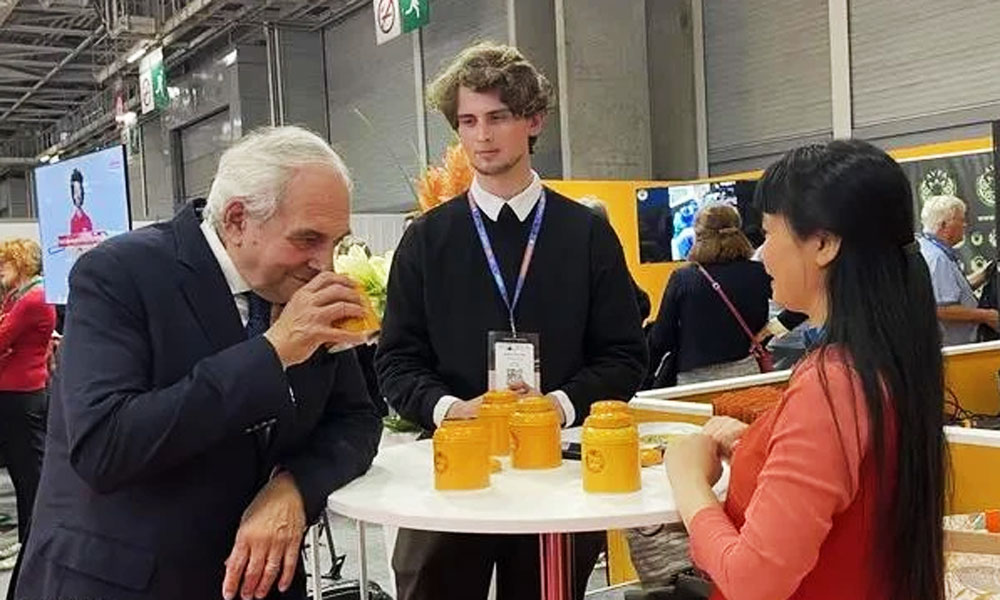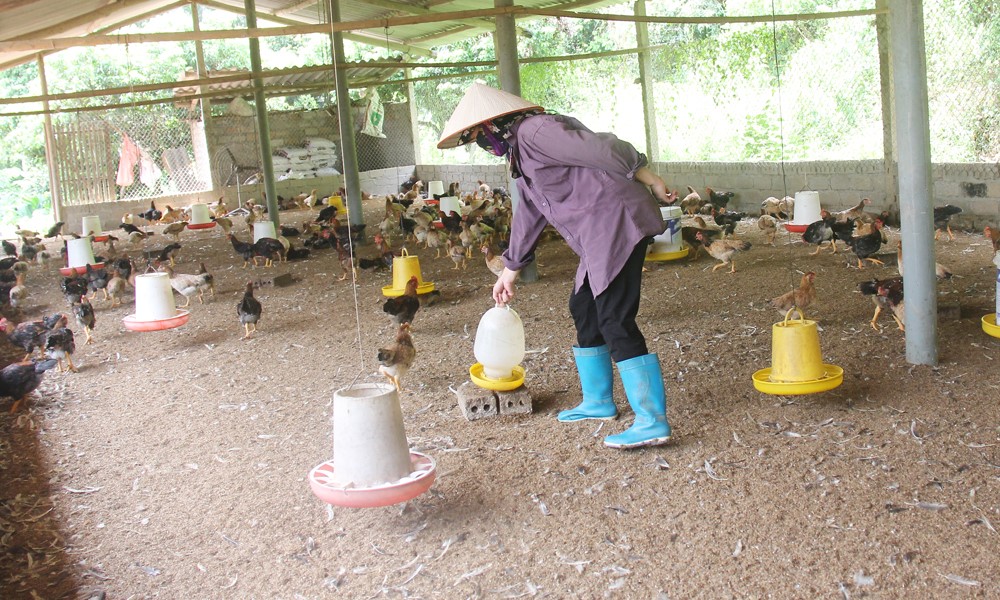Economic diplomacy contributes to national development
As one of the four pillars of the sector, economic diplomacy is the connotation and cross-cutting task that most practically serves the country's development.
Accompanying national development
Since the mid-1970s when the country was about to be reunified, the diplomatic sector soon identified the need for a new direction of economic diplomacy, to serve the country's post-war recovery.
 |
|
At the 7th meeting of the Joint Commission for Economic, Scientific, and Technical Cooperation, between Vietnam and Malaysia in July 2023. |
A working group on economic research of the Ministry of Foreign Affairs was formed, pioneering in researching development models and trends of the world economy and advising the Party and Government in planning guidelines and policies on economic development and overcoming difficulties such as fighting inflation and solving debt problems.
The working group also boldly proposed innovative and breakthrough ideas to contribute to the country's renewal cause, as well as actively expanded international relations, mobilised aid for national reconstruction and made efforts to implement policies to break sieges and embargos.
Entering the 1990s and especially since Vietnam joined the World Trade Organisation (WTO) in 2006, the diplomatic sector has made efforts to seek resources for the country's economic development, contributing to opening up new potential export markets, mobilise and attract FDI investment and ODA aid from partners, as well as promote the image of a dynamic and innovative Vietnam, thereby contributing to important achievements in trade, investment and tourism over the past years.
The diplomatic sector has also proactively and actively promoted Vietnam's extensive international economic integration and linkage process; provided strategic advice on Vietnam's active participation and contribution and responsibility in multilateral economic cooperation mechanisms; supported advocacy, negotiation and signing of free trade agreements (FTAs), with many key partners, contributing to expanding development space to make Vietnam an important chain in regional and global economic links and enhancing the country's international position.
Actively implementing the policy of the 13th Party Congress
The 13th National Party Congress has set out important guidelines and policies for foreign affairs in general and economic diplomacy in particular. The Congress affirmed to ensure the highest national interests and clearly defined the position and pioneering role of the diplomatic sector in creating and maintaining a peaceful and stable environment and mobilising outside external resources, to develop and improve the position and prestige of the country.
The National Party Congress' Document also sets out for the first time the orientation of “building economic diplomacy for development, with people, localities and businesses as the centre”.
Thoroughly grasping and implementing the foreign policy of the 13th Party Congress and upholding the tradition of the diplomatic service, economic diplomacy has been drastically and comprehensively, achieving profound changes in quality and quantity, with many important results.
Vaccine diplomacy contributed to the successful implementation of the vaccine strategy, creating a basis for the country's recovery and socio-economic development. In the context of the world and the country facing unprecedented challenges, especially the impact of the fourth outbreak of the Covid-19 pandemic, economic diplomacy has been practically and actively carried out, in which vaccine diplomacy is the brightest point with results beyond expectations, making an important contribution to the epidemic prevention and control and protection of people's health.
The Ministry of Foreign Affairs, along with other ministries and agencies and members of the Government's Working Group on vaccine diplomacy, led by Minister of Foreign Affairs Bui Thanh Son, advised senior leaders to hold phone talks, contacts and letters exchanges with leaders of countries, international organisations and vaccine manufacturers around the world, to mobilise aid and the supply of vaccines, medical equipment, therapeutic drugs and technology transfer.
As a result, from 117,600 initial doses of the vaccine in February 2021, Vietnam received more than 192 million doses by the end of 2021, exceeding the target of 150 million doses according to Resolution No. 21/NQ-CP of the Government. Up to now, Vietnam has received more than 258 million doses, including more than 120 million doses from foreign aid, accounting for nearly 50%, saving more than 900 million USD (nearly 23 trillion VND) of the state budget.
The vaccine diplomacy campaign was also a large-scale and unprecedented diplomatic campaign, contributing to the success of the Government's vaccine strategy, helping Vietnam get behind, but finish first in vaccinations and creating an important and decisive basis for the country to switch to a strategy of safe and flexible adaptation to the epidemic and economic recovery.
The economic diplomacy promptly shifted the focus from vaccine diplomacy to diplomacy for socio-economic recovery and development, putting people, localities and businesses at the centre.
Thoroughly grasping the policy of the 13th Party Congress, as well as the direction of the Party General Secretary at the National Conference on Foreign Affairs and the Prime Minister at the 31st National Diplomatic Conference, the Ministry of Foreign Affairs has urgently concretised the views and important directives into key tasks. Economic diplomacy has recorded dramatic changes to become the central task of the whole industry and achieved many positive results.
Among nearly 100 foreign activities of key leaders since the beginning of 2022, economic cooperation has become the central content that has achieved concrete and substantive results with many economic cooperation agreements signed.
Vietnam has established new groundbreaking cooperation frameworks such as the Digital-Green Economy Partnership with Singapore, the new generation ODA with Japan, the Strategic Partnership on Green Finance with Luxembourg, and the Memorandum of Understanding (MoU) with the World Economic Forum (WEF), during the 2023-2026 period.
Secondly, the diplomatic sector has actively contributed to promoting international economic integration and linkage; actively mobilising and attracting resources for new growth drivers, green financial sources and investment in energy conversion and high technology.
Notably, Vietnam signed a Just Energy Transition Partnership (JETP) with G7 countries and Europe, with an initial investment of 15.5 billion USD; successfully attracted many green and high-tech investment projects; and established frameworks for international economic cooperation and linkage.
Thirdly, to concretize the task of people, localities and businesses as service centres, under the direction of the Prime Minister, the diplomatic sector has actively accompanied and supported sectors, regions, localities and businesses to expand economic cooperation.
The Ministry of Foreign Affairs and overseas Vietnamese representative agencies have boosted support for tourism recovery, as soon as the Government decided to reopen international tourism and advised the Government to issue favourable visa policies for international tourists; promote economic diplomacy briefings to help associations and industries capture more market information and advice on orientations and solutions to overcome difficulties and expand export markets.
Fourthly, in the context of the complicated and unpredictable world economic situation, the research, advice and strategic forecasting for socio-economic management have been particularly focused and promoted. The Ministry of Foreign Affairs promptly prepared reports to advise the Government, ministries, agencies and localities on current issues of the world and regional economy, and emerging issues that have direct impacts on the country’s economic development.
Promoting the role as an important motivator
Based on closely following the direction of the Party and State, especially the Prime Minister at a Conference on implementing economic diplomacy in the last six months of 2023, the Ministry of Foreign Affairs focused on promoting economic diplomacy in three major directions.
Firstly, efforts will be made to continue to take advantage and bring into full play the potential and strength of the country, towards being more proactive and active in creating a situation conducive to the peace, security and development environment of the country; effectively take advantage of cooperation opportunities; and ensure the consolidation of the strategic balance and harmonious development of relations with partners.
Secondly, priority will be given to promoting the main growth drivers such as exports, investment, tourism, and agriculture, as well as new growth drivers in terms of digital transformation, green development, circular economy, sharing economy and creative innovation.
Thirdly, the Ministry will continue to drastically concretise the policy of building economic diplomacy for development, with people, localities and businesses as the centre, to serve and effectively improve the support for industries, sectors, localities and businesses, in international cooperation.
Upholding the achieved results and the glorious 78-year tradition and with the highest determination, the diplomatic service continues to make economic diplomacy become a very important driving force for the rapid and sustainable development of the country.
Source: NDO
 Bắc giang
Bắc giang















Reader's comments (0)